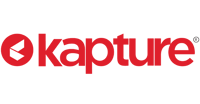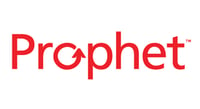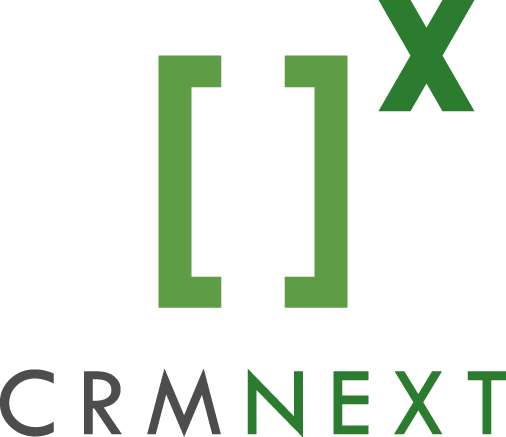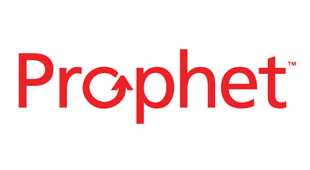Streamline pharmaceutical operations with CRM for the pharma industry.
CRM System for the Pharma Industry
The pharmaceutical sector is undergoing significant transformation. The rising prices and complexity of the pharmaceutical network are putting enormous pressure on the healthcare industry. Pharmaceutical businesses, wholesalers, pharmacies, doctors, and hospitals can utilize CRM software to streamline their business operations and create patient profiles, allowing them to offer personalized products and services.
What benefits does the best pharmaceutical CRM software provide for your organization? It can help boost sales and customer loyalty in two ways. It can help pharmacists and clinics manage their end-use customers. Furthermore, it can assist pharma companies and other biotech businesses in strengthening relationships with doctors and clinics who are regular customers of pharmaceutical products.

Features specific to pharma CRM
- Sample and inventory management
Pharmaceutical CRMs often offer inventory and sample management features. These tools allow sales representatives to efficiently manage product samples, track expiration dates, and ensure compliance with distribution regulations. It helps in controlling inventory costs and avoiding compliance issues.
- Healthcare professional relationship management
Pharma CRMs facilitate the management of relationships with healthcare professionals, including physicians, pharmacists, and researchers. They help track interactions, preferences, and compliance with legal and ethical guidelines for promoting pharmaceutical products.
- Sales and marketing analytics
Pharmaceutical CRM systems provide analytics and reporting capabilities tailored to the industry. These features enable companies to analyze sales performance, marketing campaigns' effectiveness, and market trends. Insights gained from these analytics help in refining sales and marketing strategies.
- Compliance and regulatory tracking
Pharma CRM systems include tools to track and manage compliance with strict pharmaceutical regulations and industry standards.
Best CRMs for the Pharma Industry

Keap is a versatile Customer Relationship Management (CRM) platform that, with its adaptability and marketing automation capabilities, can be effectively utilized in the pharmaceutical industry.
4.1
Odoo, a comprehensive and highly customizable business management software suite, can be effectively tailored to meet the unique needs of the pharma industry, serving as an all-in-one Customer Relationship Management (CRM) platform.
4.1

Kapture is a CRM software, designed and developed to streamline the sales and CRM-related processes while keeping in mind the needs of every business.
4.2

Prophet CRM is a CRM embedded within Outlook and tracks activities automatically which lets everyone can access the information they need without having to leave Outlook.
4.2

StayinFront offers a range of features and tools that make it an ideal CRM solution for pharmaceutical companies and professionals. It is accessible via mobile devices, making it convenient for sales representatives.
3.7
Medismo allows pharmaceutical companies to efficiently manage leads and contacts by capturing and organizing essential information about healthcare professionals, organizations, and stakeholders.
3.7

SalesBabuCRM allows sales representatives to track and record their interactions with healthcare providers. This maintains a clear record of communication and ensures that follow-up activities are carried out promptly.
3.1
Inception CRM makes it easy for Rx and OTC sales reps to create customized offers that pharmacists need to make sure your products are always in stock.
4
What type of CRM for the Pharma Industry is commonly used?
In the pharmaceutical industry, various types of CRM are in use, providing options based on your specific needs. For even greater efficiency in your company's operations, you can integrate different CRM systems, each offering distinctive functionalities. Let's delve into the most prevalent types of CRM tools.
- Operational CRM: This type proves particularly advantageous for front-office teams. By collecting customer data, it streamlines and automates sales, marketing, and service procedures.
- Analytical CRM: Here, customer data is analyzed, aiding in strategic market campaigns and the management of customer information.
- Sales Intelligence CRM: This type alerts sales teams about sales performance, customer trends, profit margins, and alignment.
- Collaborative CRM: Focused on enhancing service quality, this type compiles information from various departments for a comprehensive view.
- Campaign Management CRM: This kind enables the amalgamation of data from operational and analytical CRM aspects.
Implementing a CRM for pharma companies is essential. The choice of CRM type depends entirely on your preferences, and you can even combine multiple types. Furthermore, if the listed CRM types don't fully meet your requirements, you have the option to develop a custom CRM tailored precisely to your specific needs.
Advantages of Using CRM for the Pharma Industry
There are numerous advantages to using pharma CRM software. It makes no difference if you own a small pharmacist business or a huge pharma company.
A CRM system will help you to streamline your operations. It does this by sparing your human sales representatives of monotonous activities, increasing your sales network, and developing deeper and more loyal relationships with your current customers. Finally, it has the potential to increase revenue.
Common features include task, calendar, and opportunity management tools. You also get marketing tools to assist you in spreading the word about your products and generating additional leads. Sales representatives can use tools to organize their visits and samples. Customer service modules are also common in pharmaceutical CRM. Moreover, there are ERP-like functions for inventories, shipments, and deliverables.
Strengthened Customer Bonds
At its core, CRMs are dedicated to fostering robust customer relationships. In the realm of pharmaceutical CRM, this means that clinics engage customers with valuable content, promoting communication with ease. Larger pharmaceutical entities leverage CRMs to maintain connections with doctors, chemists, and other healthcare professionals.
Seamless Database Integration
The foundation of CRMs rests upon robust databases that provide a panoramic view of all contacts. Whether customers, doctors, or chemists, data remains readily searchable and shareable. CRM systems update contact information in real time, even as contacts modify their public social profiles. Furthermore, these systems consolidate communication histories across diverse channels in a singular repository.
Effective Customer Account Management
Accurate customer data preservation is pivotal for pharmaceutical businesses, particularly concerning purchase histories. When a customer revisits, their pertinent medical and pharmaceutical information becomes accessible to the pharma specialist. This aspect of pharmaceutical CRM culminates in an exemplary customer experience.
Optimized Inventory Cycle Management
In terms of inventory management, CRMs provide analytics that show items with heightened market demand based on purchasing trends. This foresight enables seamless preparation for future orders.
Efficient Order Management
Navigating the intricacies of order processing, often laden with time-consuming paperwork, necessitates a more efficient approach. Leading pharmaceutical CRMs are equipped with order management tools with automation capabilities. This synergy speeds up order processing, reducing the chances of human error. The automation feature further streamlines recurring tasks.
Main Features of CRM for the Pharma Industry
Automation Campaign Management
Pharmaceutical companies need to promote and distribute their products. Within the pharmaceutical realm, a tailor-made CRM system can organize automated marketing and sales campaigns. These platforms offer tools to introduce new products to the public and capture potential leads. They facilitate meaningful interactions with potential clientele, effectively transitioning them into confirmed sales. Many of these intricate procedures can be seamlessly streamlined through automated workflows, an approach that not only optimizes sales but also boosts the return on investment.
Data Analysis
CRM software for pharma businesses compiles a rich repository of data including patients, customers, and products. This repository is continually updated in real-time, enabling insightful analyses and generating periodic reports. This capacity empowers pharmaceutical companies to effectively manage inventory, plan targeted marketing and sales strategies, and even guide R&D.
Cross-Selling and Up-Selling
A pharma CRM system helps companies develop strategies to pique customers' interest in new or different pharma products. Targeted marketing campaigns come into play to cross-sell and up-sell to potential buyers based on their propensity to make purchases. This prediction is informed by data captured from prior transactions and engagements.
Better Efficiency
Finally, any robust CRM is excellent for increasing efficiency. CRMs use automation to replace rote paperwork. These platforms can search the internet for information and update your files in real time. They can be used to send reminders and follow-ups to your contacts, as well as to help with appointment scheduling. A CRM for pharma enables humans to accomplish more in fewer steps and less time. It may even reduce the need for human work.
Responsive Customer Service
CRM solutions have a significant influence on enhancing customer contentment. An integral element is the incorporation of technical support within the platform. Especially in the pharmaceutical industry, consumers seek assurance that the company can address any queries or concerns. CRM platforms for pharma organizations facilitate seamless communication between customers and pharmaceutical entities across a variety of channels and devices. Support representatives can readily access customer information, enabling them to deliver personalized service.
What to look for when choosing CRM Software for the Pharma Industry?
Selecting the right CRM (Customer Relationship Management) software for pharmaceutical companies involves several critical criteria:
- Compliance and Regulation: The chosen CRM should meet industry-specific compliance and regulatory standards, ensuring that sensitive patient and healthcare data is handled securely.
- Integration Capabilities: The CRM should seamlessly integrate with other systems used in the pharmaceutical industry, such as databases, ERP systems, and e-prescription platforms.
- Automation and Workflow: Look for CRM software that offers automation features for sales campaigns, data updates, and customer communication. Workflow customization should accommodate the complexities of pharma operations.
- Data Security: Data encryption, access controls, and secure storage are essential for protecting patient information and maintaining confidentiality.
- Customization: The CRM should allow customization to suit the unique needs of pharmaceutical companies, including patient profiling, product information, and prescription tracking.
- Customer Engagement: Features like multichannel communication, appointment scheduling, and personalized patient interactions enhance customer engagement and satisfaction.
- Analytics and Reporting: Advanced reporting and analytics functionalities help monitor sales performance, marketing campaigns, and customer interactions for better decision-making.
- Mobile Accessibility: Mobile compatibility enables field sales representatives and medical professionals to access critical information on the go.
- Customer Support: Reliable customer support and training resources are essential for seamless implementation and ongoing use.
- Scalability: As the pharmaceutical business grows, the CRM should be scalable to accommodate an expanding customer base and increased data volume.
- Cost-effectiveness: Consider the costs associated with the CRM, including licensing, implementation, training, and ongoing maintenance.
- User Interface and Ease of Use: A user-friendly interface ensures that employees at all levels can efficiently use the CRM without extensive training.
Evaluating CRM options based on these criteria will help pharmaceutical companies choose a solution that optimizes operations, compliance, and customer relationships effectively.
FAQs
What is CRM Software for the Pharma Industry?
Pharmaceutical CRM is a technology that can assist your firm in meeting compliance requirements, completing sales campaigns, increasing sales and marketing efficiency, and efficiently monitoring client or employee connections. It is a complex digital solution that opens up numerous opportunities for the pharmaceutical business. Whether you own a small or large firm, automated operations, integration with industry databases, and activity tracking are just a few of the advantages that a CRM may provide.
What are the Top CRMs for the Pharma Industry?
Creatio, Kapture, StayinFront, Veeva, CRMNEXT, Synergistix, and Medismo are among the best CRMs for the Pharma Industry.
What are the basic features of CRM for the Pharma Industry?
CRM for the Pharma Industry has many useful functions, including:
- Campaign Management
- Data Analysis
- Real-time Monitoring
- Cross-Selling and Up-Selling
- Customer Service
Why CRM for pharma companies is the necessary solution?
CRM (Customer Relationship Management) is exceptionally beneficial for pharmaceutical companies due to its ability to streamline operations, enhance customer relationships, and boost sales and marketing efficiency. It aids in meeting compliance requirements, automating sales campaigns, and effectively monitoring interactions with customers and healthcare professionals. This digital solution offers tailored features for the pharmaceutical industry, making it an essential tool for both small and large pharma businesses.
Other CRM Industries
Higher Education
Attract, sustain, and serve your students with CRM for higher education
Insurance
Reduce risk and increase profits with CRM for Insurance
Consulting
Conduct business from your pocket, with a CRM for consultants
Manufacturing
Improve the planning, production scheduling, and communication with a manufacturing CRM.
Real Estate
Manage properties, buyers, and sellers on a unified platform with CRM for real estate.
eCommerce
Improve customer relationships and reach new markets with CRM for eCommerce.
Small Business
CRM is an inexpensive software solution to scale your business.
SaaS Companies
Reduce churn and attract more customers with a CRM for SaaS.
Nonprofits
Raise more money, motivate volunteers, and grow strategically with CRM for nonprofits.
Retail
Add a personal touch to every shopping experience with CRM for retail.
Construction
Modernize your business and deliver projects faster with a CRM for construction.
Healthcare Industry
Improve patient outcomes with a CRM for healthcare.




